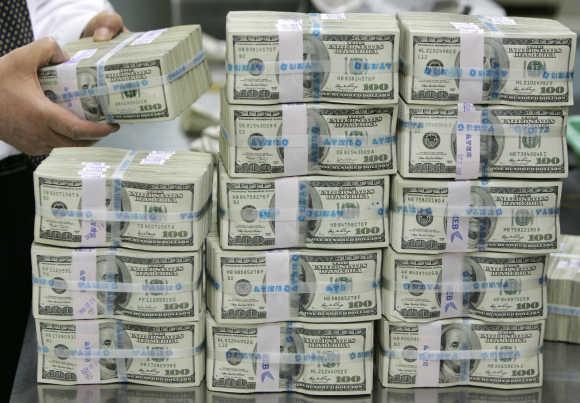
64% of 800 investors polled think it will start this week but weak US data suggest it might not be aggressive.
Two big events this week - the Federal Open Market Committee (FOMC) meeting on Wednesday and RBI's policy review on Friday - will determine which way equity markets head.
Since June, the Federal Reserve has been looking to taper its $85 billion a month bond buying programme. The FOMC's meeting is crucial for emerging markets like India because over the last few years, financial markets have been fuelled by easy liquidity.
Since 2009, $100 billion has flowed into Indian equities. Not surprising, then, that the talk of a possible taper from this month has sent risk assets and commodities into a tailspin.
So, are the taper related fears unfounded or are they real? To begin with, markets have already priced in some tapering from this month. However, if the Fed tapers its bond buying by $10 billion, the impact on financial markets would be negligible.
But if it is higher than $10 billion, markets may roil. According to a Barclays survey, conducted among 800 global investors, 64 per cent of respondents believe tapering will start this week and almost all of them expect it to occur before the end of the year.
Investors now perceive the removal of Fed stimulus will start earlier, the survey says. Forty five per cent expect the Fed to finish their open-ended QE3 programme in second quarter of 2014, while most respondents in our June survey thought it would happen in the fourth quarter of 2014 or later.
Interestingly, most investors believe equities have become less attractive but have shown a slight increase in their preference for emerging markets and commodities from June.
Barclays says: "The perception of key risks has also shifted. Last quarter, a reduction in Fed policy stimulus was seen as the key risk for markets by nearly 40 per cent of survey participants; today, the number is just 26 per cent."
Several economists in the US believe concerns regarding a taper could be premature, as growth data continues to be weak and the Fed does not want "risk off" trades just yet.
Talks of a taper have pushed up interest rates in the US by over 100 basis points and any further increase would impact growth. For starters, it is believed growth has slowed in the third quarter (ended September) from the 2.5 per cent seen in the second quarter. Economic growth bottomed out in the fourth quarter of 2012 when it touched 0.1 per cent. While there is no doubt that growth is picking up, questions remain on how sustainable this would be without the stimulus.
Since the Fed met at the end of July, there have been 21 growth-related data releases. Of the 21 releases, 12 have been below consensus.
New home sales in the US in the month of July have fallen by 13.4 per cent. Bank of America Merrill Lynch says it's a close call but it is still in the December camp when it comes to the Fed's possible tapering.
